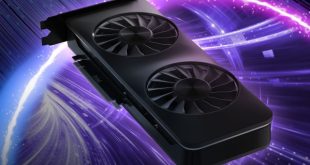On November 7th Nvidia reclaimed the top performance spot from AMD with the GTX780 Ti release. There is no questioning the performance of Nvidia's new flagship part at 1600p and Ultra HD 4K resolutions.
We still rate the Nvidia reference solution, as it combines low noise emissions with modest heat output. The same thing can certainly not be said about recent AMD reference coolers.
As impressive as the reference Nvidia board was, we knew there would be some room for improvement when partners tweaked the design. Our point was proved on November 23rd when we tested the Palit GTX 780 Ti JetStream OC.
While Palit often get overlooked for high end designs, the GTX780 Ti JetStream OC was actually one of the best graphics cards we have ever tested and pushed our expectations to a different level.
We have always praised ASUS for their Direct CU II cooler designs and there is no doubting that ASUS have improved on the reference design. The two fan cooler held a gaming load temperature at 72c which was seven degrees better than the reference cooler. Considering the increased clock speed and overclocking potential this seems reasonable … until we look at the performance of the JetStream cooler fitted to the Palit GTX 780 Ti sample.
Under the same conditions, the peak temperature of the Palit solution was 8c lower, hitting 64c under gaming load. As we know both Asus and Palit cards are equipped with high grade heatsink coolers based around thick copper heatpipes and direct touch technology. While the ASUS card is cooled by two large fans, the Palit engineers have adopted a tri-fan configuration. This has clearly been advantageous to the dissipation of radiated heat.
It goes without saying that ‘more is not always better', but the Palit JetStream cooler is an astonishing piece of engineering and sets the bar that others will definitely struggle to meet.
Out of the box, the Asus GTX 780 Ti DirectCU II OC is clocked at 954mhz, which seems quite modest, considering we managed to overclock it to 1,077mhz. Obviously every sample will overclock to a different level, but we feel that 980mhz would have been safe enough for ASUS to guarantee throughout the range.
The reference ASUS GTX780 Ti is priced at £599.99 inc vat. Asus informed us just before publication that the DirectCU II OC will only command a small price premium, hitting retail for around £620 inc vat.
ASUS are facing a real battle against Palit. The Jetstream GTX780 Ti is quieter, runs cooler and is shipped at a higher clock speed out of the box.
Discuss on our Facebook page, over HERE.
Pros:
- High engineering standards.
- very high performance at 1600p and Ultra HD 4K resolutions.
Cons:
- The three fan Palit GTX780Ti JetStream OC is better.
- The supplied gold coloured stickers are really only useful if you own one of the latest Asus motherboards.
Kitguru says: An excellent card from Asus, but it has a lot of competition at £600+.

 KitGuru KitGuru.net – Tech News | Hardware News | Hardware Reviews | IOS | Mobile | Gaming | Graphics Cards
KitGuru KitGuru.net – Tech News | Hardware News | Hardware Reviews | IOS | Mobile | Gaming | Graphics Cards



Excellent looking card, but ih ave to say ‘gold stickers’? its that because they are the only company in the world to make gold coloured motherboards? blue and red and green would have been much better.
Good card though
I like ASUS GPU’s but they are always so expensive compared to other makes, this one seems priced ok, considering its a Ti, but the R9 290 is so much better value overall.
I agree with Ben. I guess the best option taking into account the price quality ratio is the Asus R9 290X. It´s not much more expensive than the R9 290 and it´s much better:
http://versus.com/en/asus-r9-290-vs-asus-r9-290x
It´s also over 100$ cheaper than Asus GTX780 Ti Direct CUII OC.
The R9 290X may be cheaper than the 780 Ti, but it’s not the best of the best! Asus GTX 780 Ti Direct CUII OC = The best of the best!